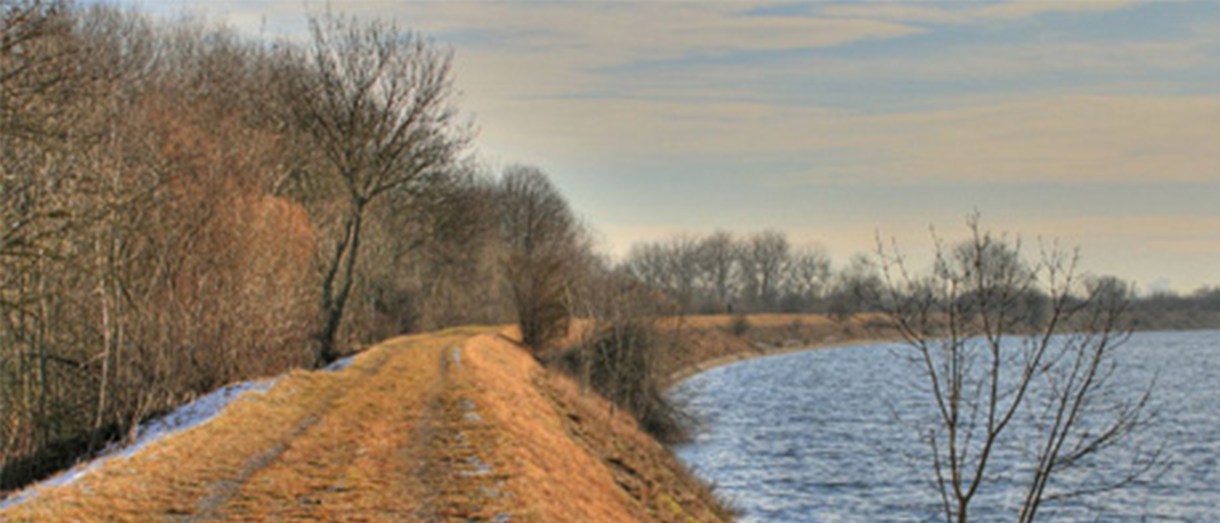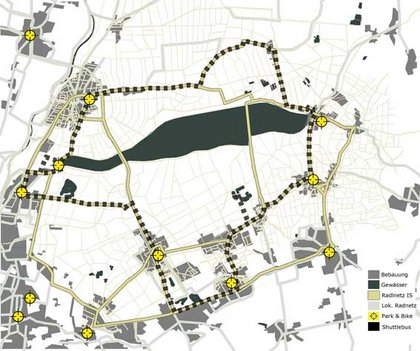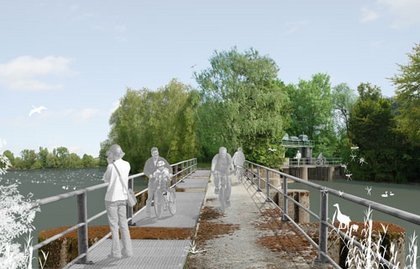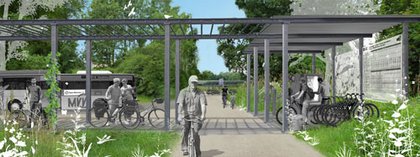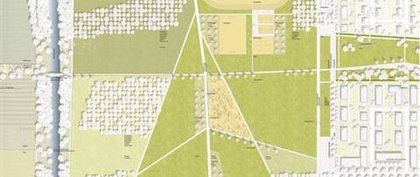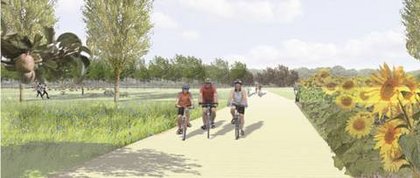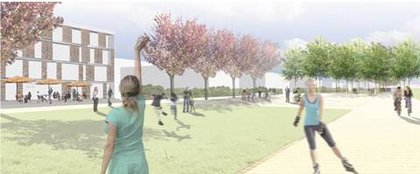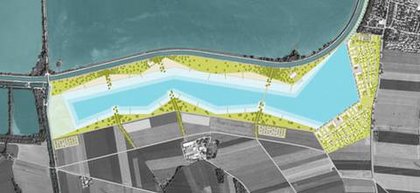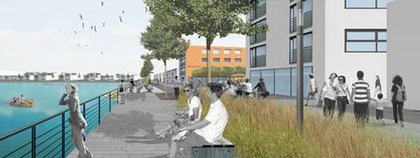water.void
Potentials of the Ismaning Reservoir
Semester Project M.A. Landscape Architecture, Summer Semester 2013
Topic
After Munich Airport, the Ismaning reservoir is by far the largest single element in the immediate vicinity of Munich. Created in the course of the construction of the Isar Canal, the lake was built in 1929 on an area of almost 6 square kilometers. Its basin was filled up and the water surface is partly above the surrounding terrain. Despite its size, however, the reservoir is only present on the Internet - for many Munich residents, the vast lake landscape with its numerous carp ponds is still a white spot on the map. Due to its allocation of use as a reservoir, it hardly plays a role in the leisure time behavior of Munich residents and is therefore not perceived in the lived-in city. Lake Ismaning is purely an infrastructural structure for power generation and wastewater treatment. Today, the "hidden" lake is almost only used by ornithologists, anglers and the adjacent BMW test track.The project water.void deals precisely with this isolated situation in the north-east of Munich. Can such an infrastructurally used landscape area serve as a local recreation area for the metropolitan region? Is a link to the urban body via the Isar and the English Garden conceivable and is such a link even necessary? How have the interest groups - nature conservation, anglers, recreational athletes, kite surfers as well as the energy company and the municipalities with their different development goals - spatially shaped the Water.voids of the reservoir?
Task
The aspects and questions addressed above will run through the project work as a theoretical guideline. In the design project water.void we are looking for approaches to grasp the local phenomena of the "Ismaninger Speichersee" more precisely and to redefine the landscape space. Strategies for the handling and long-term development of this space are to be worked out. A sub-area is to be more precisely designed and conceived on the basis of the developed strategy.
Supervision
Prof. Regine Keller, Dipl.-Ing. Thomas Hauck, Dipl.-Ing. Felix Metzler (Projektleitung), Dipl.-Ing. Juliane Schneegans
